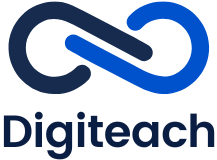Coding has developed into a vital skill with a wide range of professional opportunities in today’s technology-driven environment. There are several ways to study programming, regardless of whether you’re a recent graduate, changing careers, or just interested in learning. Coding bootcamps and online courses are two well-liked choices. Both provide extensive learning opportunities, yet they are different in a number of ways. We’ll delve into the world of coding bootcamps and online courses in this blog, looking at their benefits and drawbacks as well as things to think about before starting your coding adventure.
Coding Bootcamps
Coding bootcamps have gained immense popularity in recent years. These intensive programs aim to equip students with practical coding skills in a short span of time, typically ranging from a few weeks to a few months. Here are some key points to consider:
- Immersive Learning Experience: Bootcamps offer an immersive learning environment, often resembling a full-time job. Students dive deep into coding concepts, work on real-world projects, and collaborate with peers.
- Industry-Relevant Curriculum: Bootcamps focus on teaching the most in-demand programming languages and frameworks. They align their curricula with industry needs, ensuring students learn skills that are directly applicable to the job market.
- Networking Opportunities: Bootcamps often foster a tight-knit community, connecting students with industry professionals, mentors, and alumni. These networking opportunities can open doors to job placements and collaborations.
Online Courses: Flexible Learning at Your Pace
Online courses provide a flexible and self-paced approach to learning coding skills. With a vast array of platforms and courses available, here’s what you need to know about online learning:
- Flexibility and Convenience: Online courses offer the flexibility to learn coding skills at your own pace, making them suitable for those with busy schedules or other commitments. You can access the materials anytime, anywhere, and learn at a speed that suits you.
- Diverse Course Selection: The online learning landscape offers a wide range of coding courses, covering multiple programming languages, frameworks, and specialties. This variety allows you to tailor your learning experience based on your specific interests and goals.
- Affordability: Online courses tend to be more cost-effective compared to coding bootcamps. Many platforms offer free or low-cost options, enabling learners to acquire coding skills without breaking the bank.
Factors to Consider When Choosing
To determine whether a coding bootcamp or an online course is the right fit for you, consider the following factors:
- Time Commitment: Coding bootcamps require a significant time commitment due to their immersive nature, while online courses offer more flexibility. Assess your availability and determine how much time you can dedicate to learning.
- Learning Style: Reflect on your preferred learning style. Bootcamps provide a structured and hands-on experience, whereas online courses offer self-directed learning. Choose the method that aligns with your learning preferences.
- Financial Considerations: Coding bootcamps can be quite expensive, whereas online courses tend to be more budget-friendly. Evaluate your financial situation and decide which option fits your budget without compromising the quality of education.
Support and Mentorship
One aspect to consider when choosing between coding bootcamps and online courses is the level of support and mentorship provided.
- Bootcamp Support: Coding bootcamps often provide dedicated instructors and teaching assistants who guide students throughout their learning journey. The close interaction and immediate feedback can be invaluable for overcoming challenges and staying motivated.
- Online Course Support: While online courses may not offer the same level of personalized support, many platforms provide discussion forums, community groups, and even instructor access for assistance. However, the level of support can vary, so it’s important to research and choose courses with robust support systems if you value that aspect.
Job Placement and Outcomes
For many individuals, the ultimate goal of learning to code is to secure a job in the tech industry. Consider the track record and reputation of coding bootcamps and online courses in terms of job placement and outcomes.
- Bootcamp Job Placement: Some coding bootcamps boast high job placement rates and partnerships with companies that hire their graduates. They often offer career services, such as resume building, interview preparation, and networking opportunities, which can increase your chances of landing a job in the field.
- Online Course Credentials: While online courses may not have the same level of job placement support, certain platforms offer certificates of completion or even verified credentials from reputable institutions. These credentials can enhance your resume and demonstrate your dedication to learning and professional development.
Learning Depth and Breadth
Consider the depth and breadth of the curriculum offered by coding bootcamps and online courses, depending on your career goals and desired level of expertise.
- Bootcamp Intensity: Coding bootcamps are designed to provide intensive and focused training, aiming to quickly equip students with job-ready skills. They prioritize practical coding experience and often focus on a specific stack or technology.
- Course Flexibility: Online courses, on the other hand, offer a wider range of options, allowing you to explore different programming languages, frameworks, or specialties at your own pace. This flexibility can be beneficial if you’re unsure about your specific career path or want to gain a broader understanding of coding concepts.
Peer Learning and Collaboration
Another aspect to consider is the opportunity for peer learning and collaboration, which can greatly enhance the learning experience.
- Bootcamp Collaboration: Coding bootcamps often foster a collaborative environment where students work on projects together, engage in pair programming, and participate in group discussions. This collaborative atmosphere can provide valuable insights, alternative approaches to problem-solving, and a sense of camaraderie.
- Online Course Communities: While online courses may lack the same in-person collaboration, many platforms have thriving online communities. These communities consist of fellow learners who can offer support, answer questions, and provide feedback on projects. Engaging with an online community can simulate the collaborative aspect of learning and create a network of like-minded individuals.
Personalized Learning and Customization
Consider your preference for personalized learning and customization options when evaluating coding bootcamps and online courses.
- Bootcamp Structure: Coding bootcamps typically follow a structured curriculum that progresses at a predetermined pace. This structure can be advantageous for those who thrive in a guided learning environment and prefer a clear roadmap to follow.
- Course Flexibility: Online courses allow for more personalized learning experiences. You have the freedom to choose specific topics or modules that align with your interests, skip sections you’re already familiar with, and revisit challenging concepts as needed. This flexibility empowers you to tailor your learning journey according to your individual needs.
Hands-On Experience and Projects
Practical coding experience is crucial to mastering programming skills. Consider how coding bootcamps and online courses incorporate hands-on experience and project-based learning.
- Bootcamp Projects: Coding bootcamps often emphasize project-based learning, where students work on real-world projects individually or in teams. This approach provides practical experience and allows learners to build a portfolio of projects to showcase to potential employers.
- Course Projects: Many online courses also incorporate projects and coding challenges to reinforce learning. These projects can help you apply the concepts learned in a practical context and gain confidence in your coding abilities. Look for courses that offer substantial project opportunities to ensure you develop practical skills.
It’s important to carefully weigh options for coding bootcamps and online courses, including support, job placement, learning style, curriculum, collaboration, customisation, and hands-on experience. The choice should be made in accordance with your learning preferences, goals, and limits. Both options have advantages. Regardless of your decision, keep in mind that success in the dynamic and quickly expanding profession of programming depends on your ability to continuously learn, practice, and apply coding abilities in real-world situations. Choose the route that best meets your requirements, then start your coding adventure with zeal and commitment.






